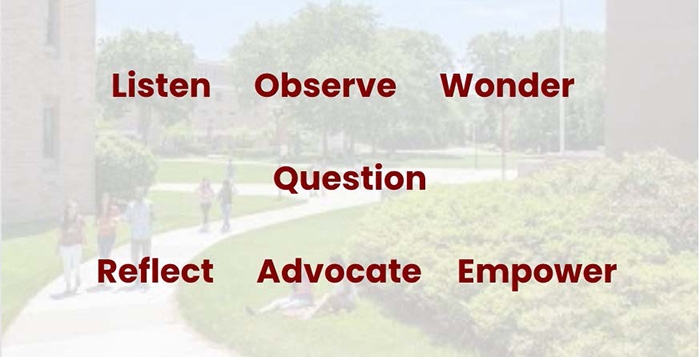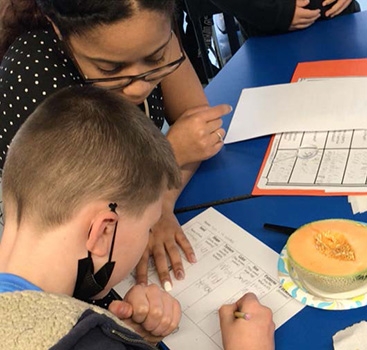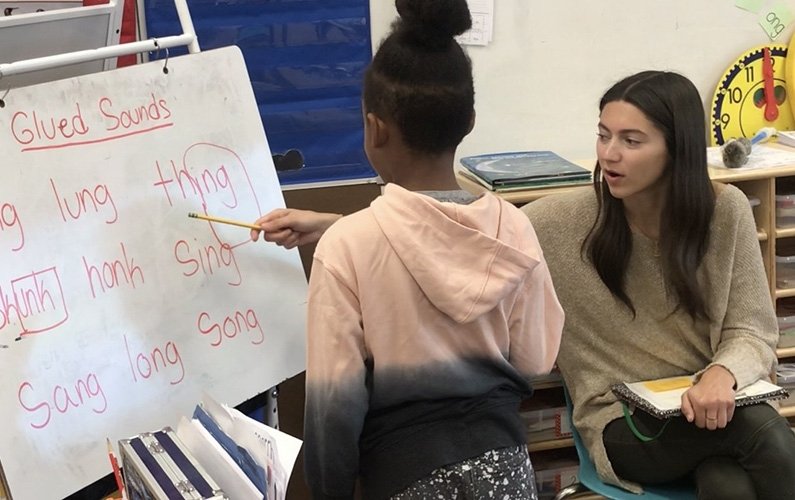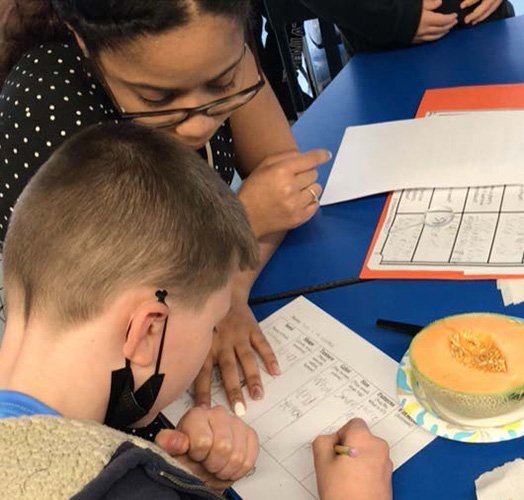Program Details
-
Earn a Masters degree in one year
-
Flexible options to finish in under 2 years
-
Qualified to apply for RI Certification for Elementary Grades 1-6

Rhode Island College’s MAT in Elementary Education program allows you to earn a master’s degree with eligibility for certification in one year.

The program is rooted in the values of equity, diversity, advocacy and is aligned with the social justice mission of the Feinstein School of Education and Human Development. Through reading, discussing, writing, thinking…, prospective teachers learn about, and begin to develop their own theories and practices, guided and informed by RIC teacher educators in partnership with teachers and children in classrooms.
Our greatest strength is the diverse perspectives that our MAT applicants bring to this program. They weave their lives lived and visions for what is possible as they evolve and develop into thoughtful, forward-thinking educators who will lead our future: our children.





Earn a Masters degree in one year
Flexible options to finish in under 2 years
Qualified to apply for RI Certification for Elementary Grades 1-6
Foundational Courses:
Your program begins with three foundational courses which are prerequisites for all other Elementary Education courses:
You may take them as an accepted MAT student or as a non-matriculating student in the process of applying to the program.
Content / Practica Courses:
Student Teaching Courses
Total credits: 45
| Summer I & II | Fall | Early Spring | Spring |
|---|---|---|---|
| ELED 500 | ELED 522 | ELED 554 | ELED 659 |
| CEP 552 | ELED 527 | ELED 569 | |
| SPED 531 | ELED 537 | ||
| ELED 528 | ELED 538 | ||
| FNED 546 | *TESL 402 or SPED 533 (Choose one) | ||
| TESL 401 |
Year 1:
| Fall | Spring | Summer I & II |
|---|---|---|
| FNED 546 | ELED 500 | SPED 531 TESL 401 |
| CEP 552 | ELED 528 |
Year 2:
| Fall | Early Spring | Spring |
|---|---|---|
| ELED 522 | ELED 554 | ELED 559 |
| ELED 527 | ELED 569 | |
| ELED 537 | ||
| ELED 538 | *TESL 402/SPED 533 (*choose 1) |
